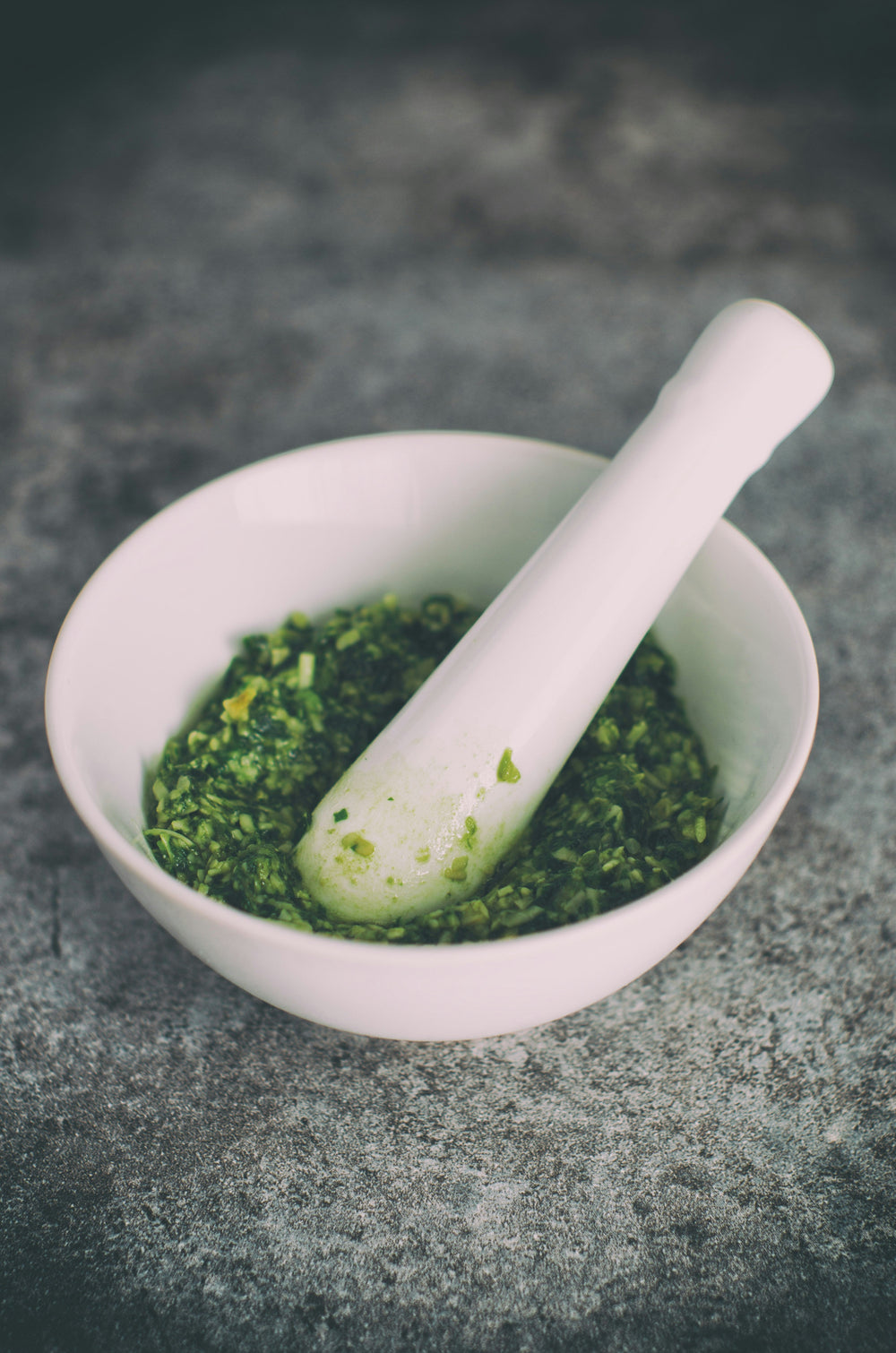This creamy green soup brings together broccoli, cauliflower, and kale for a delicious bowl that feels both comforting and energising. Finished with crispy chickpeas and toasted almonds, it is an easy way to enjoy a whole day’s worth of greens in one simple, nourishing meal.
gut lag: tips for your digestion when travelling.
What Is Gut Lag and How Can You Support Your Digestion When Travelling? We are all familiar with jet lag. The tiredness, poor sleep and brain fog that often follows a long flight. But if your digestion also feels unsettled after travelling, you may be experiencing something known as gut lag. What Is Gut Lag? Gut lag is a term used to describe the digestive discomfort that can happen when your internal body clock is disrupted by crossing time zones. Just like your sleep routine, your digestive system works on a 24-hour rhythm. When this rhythm is thrown off by long-haul travel, it can affect how your digestion feels. You might notice bloating, changes in appetite or irregular bowel movements. There is growing interest in how the gut microbiome, which is the community of microbes in your digestive system, is influenced by your body’s natural rhythms. While research is still developing, some studies suggest that changes in sleep, mealtimes and routine can temporarily affect how your gut functions. How to Support Your Gut Before Travelling Prioritise Sleep and Adjust Your Schedule GraduallyBeing sleep deprived can make it harder for your body to manage changes in time zone and routine so try to be well rested before you travel. Also, start shifting your sleep and eating times a few days before your trip to help your body begin to adapt. Apps like Timeshifter can be a useful guide to start shifting your sleep patterns. Consider a Synbiotic SupplementSynbiotics combine probiotics, which are live friendly bacteria, with prebiotics, which feed those bacteria. While individual responses vary, some find that starting a synbiotic supplement before travelling helps support their digestion during routine changes. Stay HydratedDrink plenty of water in the lead up to your flight. Good hydration supports your sleep and digestion by...

What Is Gut Lag and How Can You Support Your Digestion When Travelling?
We are all familiar with jet lag. The tiredness, poor sleep and brain fog that often follows a long flight. But if your digestion also feels unsettled after travelling, you may be experiencing something known as gut lag.
What Is Gut Lag?
Gut lag is a term used to describe the digestive discomfort that can happen when your internal body clock is disrupted by crossing time zones. Just like your sleep routine, your digestive system works on a 24-hour rhythm. When this rhythm is thrown off by long-haul travel, it can affect how your digestion feels. You might notice bloating, changes in appetite or irregular bowel movements.
There is growing interest in how the gut microbiome, which is the community of microbes in your digestive system, is influenced by your body’s natural rhythms. While research is still developing, some studies suggest that changes in sleep, mealtimes and routine can temporarily affect how your gut functions.
How to Support Your Gut Before Travelling
Prioritise Sleep and Adjust Your Schedule Gradually
Being sleep deprived can make it harder for your body to manage changes in time zone and routine so try to be well rested before you travel. Also, start shifting your sleep and eating times a few days before your trip to help your body begin to adapt. Apps like Timeshifter can be a useful guide to start shifting your sleep patterns.
Consider a Synbiotic Supplement
Synbiotics combine probiotics, which are live friendly bacteria, with prebiotics, which feed those bacteria. While individual responses vary, some find that starting a synbiotic supplement before travelling helps support their digestion during routine changes.
Stay Hydrated
Drink plenty of water in the lead up to your flight. Good hydration supports your sleep and digestion by softening the stool and supporting nutrient absorption.
What to Do During Your Flight
Set Your Watch to Local Time
Changing your watch or phone to your destination’s time can help you start adjusting mentally and physically.
Eat Light Meals
Smaller, simpler meals are often easier to digest while flying. Heavy foods such as those that are high in fat content might feel uncomfortable as they take more effort from our body to digest..
Move Regularly
Walking or stretching during the flight can support circulation and help your digestion feel more settled.
Avoid Caffeine and Alcohol
Both can dehydrate you and affect your sleep. Water is your best travel companion when it comes to staying comfortable and hydrated.
Supporting Digestion After You Arrive
Get Outside When You Wake Up
Natural light, especially in the morning, can help reset your internal body clock and support sleep and digestion.
Stay Gently Active
Light movement such as walking or gentle stretching can help ease bloating after meals.
Continue Synbiotic Support
Taking a synbiotic may help support gut comfort while you adapt to new surroundings.
Take Rest When You Need It
Short naps of 20 to 30 minutes can help reduce tiredness, especially after being in the sun, without affecting your ability to sleep at night.
Conclusion
Gut lag is a common experience for many travellers. With some preparation, a few simple tweaks can support your digestion before, during and after your journey to allow you to enjoy your travel with greater ease and comfort.
References:
Ahmed, O., Ibrahiam, A. T., Al-Qassab, Z. M., Kannan, V., Ullah, N., Geddada, S., & Nassar, S. T. (2024). Unraveling the impact of travel on circadian rhythm and crafting optimal management approaches: A systematic review. Cureus, 16(10), e71316. https://doi.org/10.7759/cureus.71316
Beh, S. F., Lee, S. K. M., Bin, Y. S., & Cheung, J. M. Y. (2022). Travelers' perceptions of jetlag and travel fatigue: A scoping review. Chronobiology International, 39(8), 1037–1057. https://doi.org/10.1080/07420528.2022.2072224
Bendtsen, M. D., Klinge, M. W., & Krogsgaard, L. W. (2025). Traveler's constipation: A prospective cohort study. International Journal of Gastroenterology, 30(4), 456–462. https://doi.org/10.1234/ijg.v30i4.56789
Duboc, H., Coffin, B., & Siproudhis, L. (2020). Disruption of circadian rhythms and gut motility: An overview of underlying mechanisms and associated pathologies. Journal of Clinical Gastroenterology, 54(5), 405–414. https://doi.org/10.1097/MCG.0000000000001333
lifestyle. gut health recipes.
ready in 10 minutes
herb-whipped cottage cheese chicken bagels.
These basil whipped cottage cheese protein bagels make a fresh, high-protein breakfast or lunch, combining creamy herb-blended cottage cheese with juicy chicken, rocket, and tomatoes. They’re quick to assemble, packed with flavour, and perfect for a nourishing breakfast or light lunch.
ready in 10 minutes
kiwi chocolate protein chia pots.
These Kiwi Chocolate Protein Chia Pots make an ideal high-fibre, high-protein breakfast that keeps you full and energised all morning. They’re quick to prepare, easy to store, and perfect for a healthy grab-and-go option.
ready in 15 minutes
spiced apple porridge.
This spiced apple and pumpkin seed porridge is a warming, high-fibre breakfast that’s perfect for cosy mornings. Made with creamy oats, gently caramelised apples and a crunchy pumpkin seed topping, it’s ready in just 15 minutes and serves one.
ready in 50 minutes
prep-ahead baked blueberry oats.
These prep-ahead oven-baked oats with blueberries and bananas are rich in protein and fibre, making them a nourishing, gut-friendly breakfast to enjoy all week.
ready in 15 minutes
spicy green eggs with feta.
These spicy green eggs with feta are a quick, protein-rich recipe packed with gut-friendly ingredients like spinach, courgette, and spring onion. Baked in the oven or air fryer, they’re simple to make, full of flavour, and support digestion with a balance of fibre, protein, and healthy fats. Perfect for breakfast, brunch, or a light meal, this vibrant dish proves that nourishing your gut can be both delicious and easy.
ready in 10 minutes
egg wrap with pesto.
Bright, fresh, and ready in just 10 minutes, this flavour-packed wrap serves one and is ideal for breakfast, lunch, or any time you’re after something simple yet filling.
ready in 10 minutes
peach cobbler overnight oats.
Start your day with a gut-friendly twist on a classic dessert. The peach cobbler overnight oats serve 2–3 and takes just 10 minutes to prepare the night before. Packed with fibre, flavour and feel-good ingredients, it’s the perfect make-ahead option for busy mornings or a nourishing snack you can enjoy any time of day.
ready in 15 minutes
smoky egg salad bagel crunch.
This smoky harissa egg bagel is the perfect 15-minute meal. Made with creamy Greek yoghurt, tangy pickles, and a hint of spice, it’s a high-protein twist on classic egg salad that delivers on both taste and texture. Ideal for busy days, this easy bagel recipe makes lunch feel gourmet without the effort.
ready in 20 minutes
chewy breakfast matcha protein cookies.
Soft, satisfying, and subtly sweet—these breakfast cookies are made to fuel your morning the right way. With fibre-rich oats, plant-based protein, and antioxidant-packed matcha, they’re a gut-friendly grab-and-go option that doesn’t compromise on flavour or function.
ready in 15 minutes
lemon & poppy seed pancakes.
Emily's light, gut-friendly crêpes are the perfect balance of fibre, protein, and healthy fats to support digestion and keep you feeling great.
ready in 10 minutes
carrot cake breakfast oats.
Start your day with a delicious and nutritious breakfast option - Carrot Cake Oats. Filled with fibre diversity to promote healthy digestion.










































